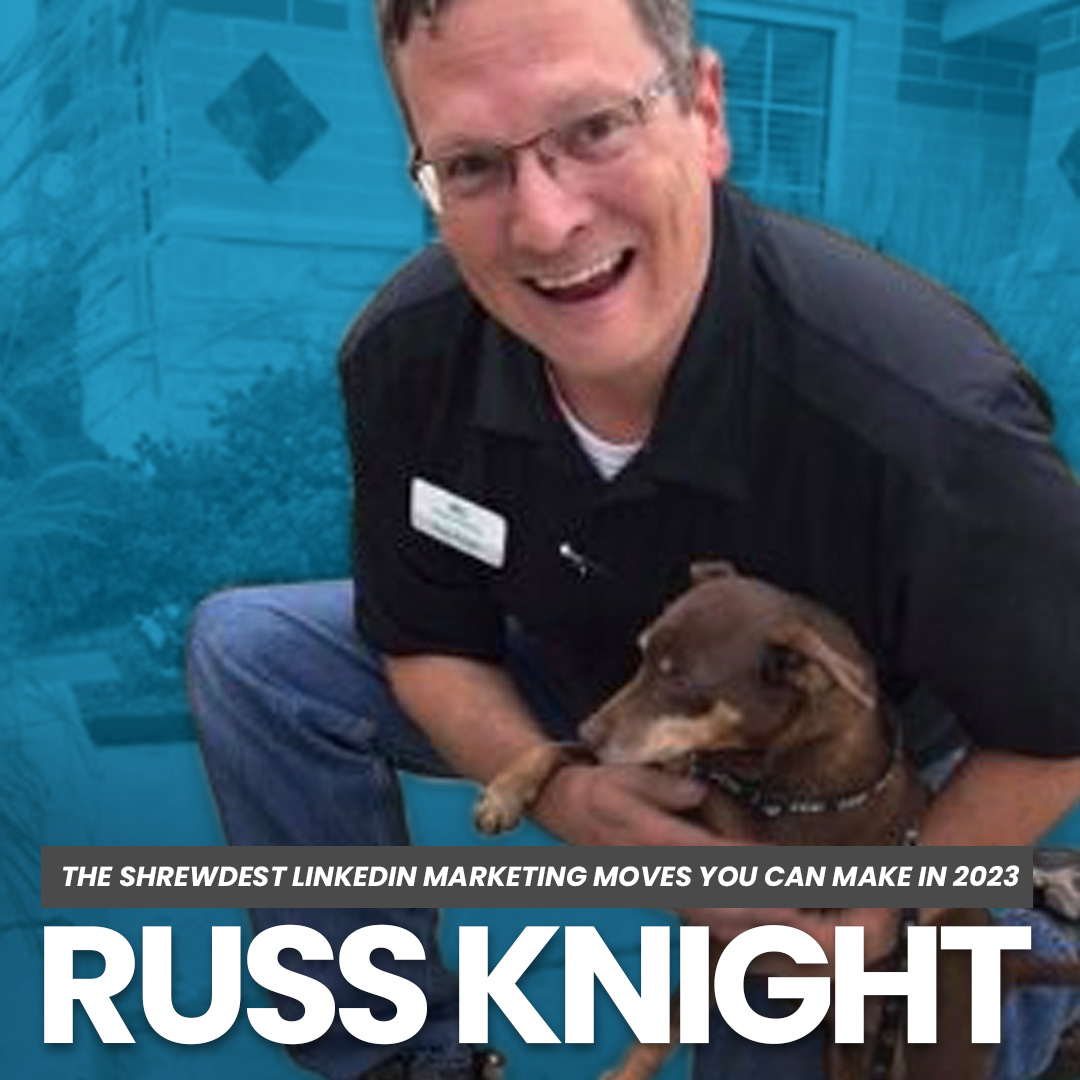Successful LinkedIn marketing requires a combination of creativity and knowledge.
Whether you are looking to build your profile to attract more leads or grow your professional network, you can employ several savvy strategies to set yourself apart from the competition.
In this week's episode, Russ Knight will share his best tips and tricks for taking your LinkedIn marketing efforts to the next level.
You'll learn the following:
- Create a powerful personal brand that people will trust
- Tell your story in a way that's uniquely yours
- Control how you're seen by the world
- And much more!
So sit back and pay close attention – your LinkedIn marketing game is about to be leveled up! Listen to this episode now!










